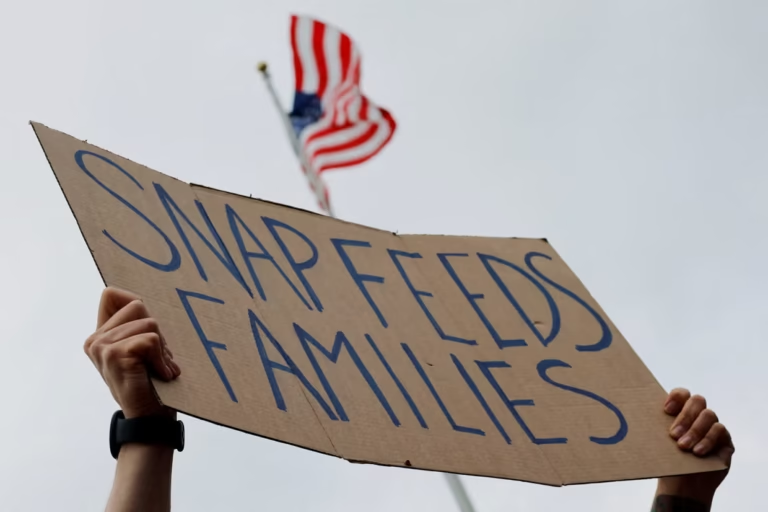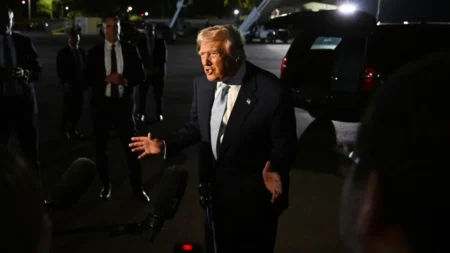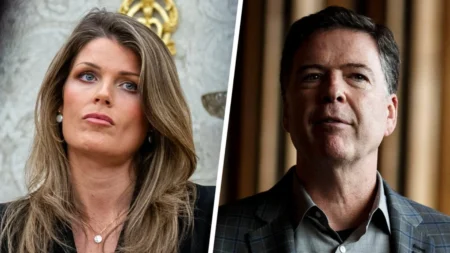Two federal judges have stopped the Trump administration from cutting off food aid for millions of Americans. The rulings came as the government shutdown reached its fourth week, raising fears that low-income families could lose access to essential nutrition support.
A federal court in Rhode Island issued a temporary order on Friday, blocking the government from suspending payments for the Supplemental Nutrition Assistance Program, known as SNAP or food stamps. The decision followed a lawsuit filed by several U.S. cities, nonprofit groups, and a trade union. Around the same time, another judge in Massachusetts ordered the administration to continue funding the program that helps low-income households avoid hunger.
The U.S. Department of Agriculture had planned to stop issuing SNAP payments starting November 1. Officials claimed the agency no longer had the authority to distribute funds without new congressional approval. SNAP supports nearly 42 million Americans—about one in eight people—each month, costing the government roughly $9 billion monthly.
In his ruling, Judge John McConnell of Rhode Island said the administration’s planned suspension appeared unlawful. He directed the government to use available contingency funds to maintain benefits. SNAP is the country’s largest anti-hunger program, designed to reduce food insecurity for families in need.
At the same time, Judge Indira Talwani of Massachusetts gave the administration until Monday to confirm whether it would use contingency or alternative funds to pay November benefits. Officials said it could take up to two weeks for benefit cards to be reloaded, but the ruling provided much-needed relief to anxious families.
The plaintiffs argued that the U.S. Department of Agriculture still had money to operate the program. They pointed to more than $5 billion in contingency funds and an additional $23 billion in other accounts that could be used to keep SNAP running. They said suspending benefits while those funds were available was both unnecessary and unlawful.
In contrast, administration lawyers claimed those reserves were meant for natural disasters such as hurricanes or floods, not government shutdowns. They also argued that using them would be “operationally difficult,” possibly leading to partial or delayed payments.
President Donald Trump responded to the court decisions on his social media platform, saying he did not want Americans to go hungry. He blamed Democrats for refusing to reopen the government and said his team would seek legal clarity on how to fund SNAP. Trump added that once authorized, it would be his “honor” to provide the funding.
Critics, however, said the administration was prioritizing political goals over essential programs. While funds were redirected to cover military and law enforcement pay, nutrition support was left unfunded. Advocates said the move highlighted a broader strategy that favored political messaging over human needs.
Food banks across the country have been preparing for a surge in demand. Rising food prices have already strained their supplies, and many expected longer lines if federal benefits were cut. Several states, including Virginia, Maryland, and Minnesota, have pledged emergency funding to help food banks and provide temporary aid.
Governors in New York, Delaware, Oregon, and Virginia declared states of emergency and set aside millions to assist residents. New York Governor Kathy Hochul said she would not “sit idly by as families struggle to put food on the table.” California Governor Gavin Newsom announced $80 million in state aid and deployed the National Guard to help distribute food.
The Trump SNAP benefits ruling ensures that millions of Americans will continue receiving critical nutrition support, at least for now. Both court decisions are expected to face appeals, but for many families, the temporary relief offers a lifeline during one of the longest shutdowns in U.S. history.







